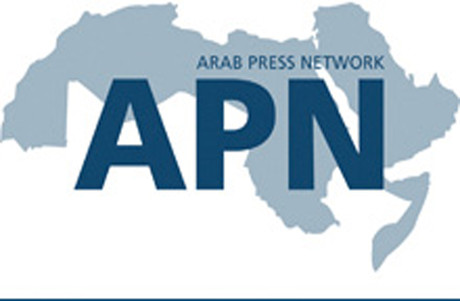Aidan White
They met to kick off a debate about the collapse of ethical and independent journalism in the wake of the popular revolt against Mohammed Morsi, the country’s first democratically elected President, who was ousted on June 30th last year.
Six months on and with a new constitution safely confirmed by popular vote – including three precious articles protecting free speech and press freedom – the journalists were meeting to analyse what happened to the revolution’s promise of press freedom and pluralism.
After the removal of President Hosni Mubarak and his repressive regime in 2011 there was unprecedented optimism about the scope for resurgent journalism, media diversity and a new era of free speech. Three years later the dream is on hold.
The election of Morsi, despite its electoral symbolism, did not mark a moment for pushing ahead with the democratic transformation of Egypt. Indeed, for many in the country, including inside media, it revealed new threats.
Having overthrown Mubarak’s police state, many people became fearful that their hard-won democracy would give way to creeping religious fascism represented by Morsi and his Muslim Brotherhood supporters.
As a result, many journalists, including some of the iconic media leaders of the revolution – such as broadcaster ONTV and the daily Al-Masry Al Youm – became foot-soldiers in a continuing battle to save the soul of their revolution.
This was no orchestrated conspiracy, but rather a coming together of like minds. Journalists and editors from both state and independent media were equally alarmed and unnerved by the threats to the revolution posed by the Morsi regime.
In the turbulent weeks after he was removed independent media on all sides drifted into a new role – as key players in a broad political front with the state, the military, the judiciary, and the police. Notions of independent journalism were suspended and replaced by partisan reporting laced with patriotism.
This change of direction inside journalism and the perceived loss of objectivity has bewildered media observers outside the country.
And the media crisis is particularly felt by foreign journalists who now find Cairo a threatening and hostile place. Twenty journalists, most from Aljazeera, have been arrested and face a range of charges. Some are in jail awaiting trial and there is a global campaign clamouring for their release.
In this confused and threatening landscape the journalists at the Greek Club, a rich mix of professionals from across all platforms – radio, television, web and print – as well as from both public and private sectors, spent the day, as one speaker put it, “raising the alarm” for press freedom and journalism.
They discussed how media had been hijacked in support of the “popular dictatorship,” which, in truth, journalists themselves have played a role in creating. They noted how the young reporters and editors, given their heads in the wake of the removal of Mubarak, have been reined in; how advertising agencies and intrusive owners are calling the editorial shots.
They considered how national voice in defence of the revolution has overwhelmed professional voice and some notional objectivity inside journalism.
Isn’t this what happened to mainstream American journalism after the September 11 attacks, it was said, when media had suspended temporarily notions of balance and objectivity after the terrorist strikes on New York and Washington in 2001? Perhaps, but no-one is celebrating that the rhetoric of George W. Bush’s war on terror – “you are either with us or you are against us” – has taken hold in Cairo.
For most journalists the “national interest” is a wretched excuse for propaganda, deceptive handling of the truth and editorial malice, but it is often the reason that has been used in Egypt recently to explain media behaviour.
Many of the journalists did not have much sympathy for Aljazeera, whose Egyptian station Mubasher has come in for particularly criticism for biased journalism in favour of the Muslim Brotherhood and Qatari policy in the region.
Nevertheless, by the end of the day the mood in the Greek club began to lighten as the meeting discussed how to change direction and get back to basics -- ethics, pluralism and professional journalism. They will support the newly-created Egyptian Association of Editors and organise more debates and discussions.
It is a small beginning, but journalists and editors have broken their silence over the media crisis. Egyptian journalists are getting back on track.
Aidan White is the founding director of the Ethical Journalism Network, an international coalition of media professional groups campaigning to strengthen the craft of journalism. He launched the network in 2012 after 24 years as general secretary of the International Federation of Journalists. Its programme this year includes support for journalists in the Middle East, Africa and Asia and two multi-country investigations, on corruption in journalism and the effectiveness of media self-regulation.



